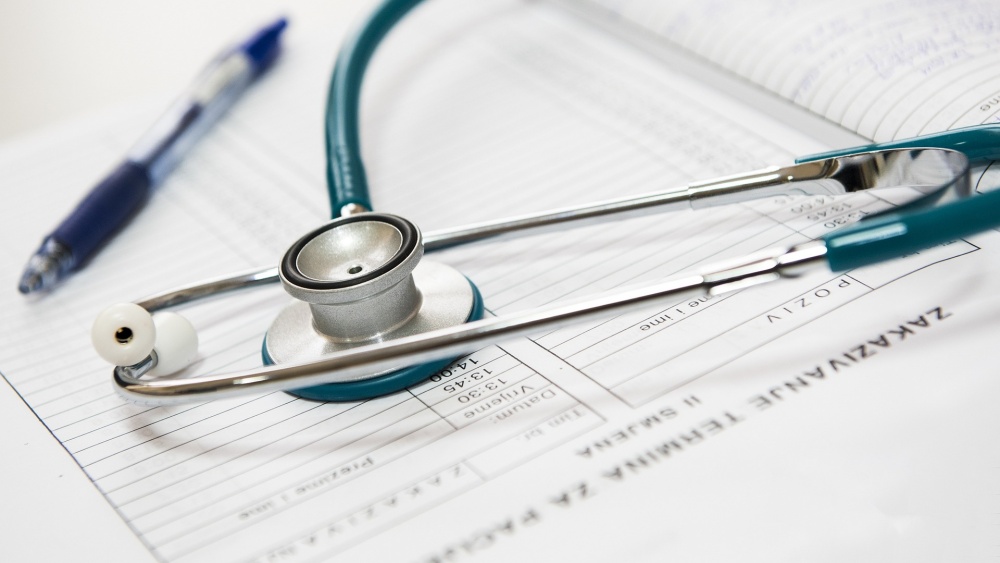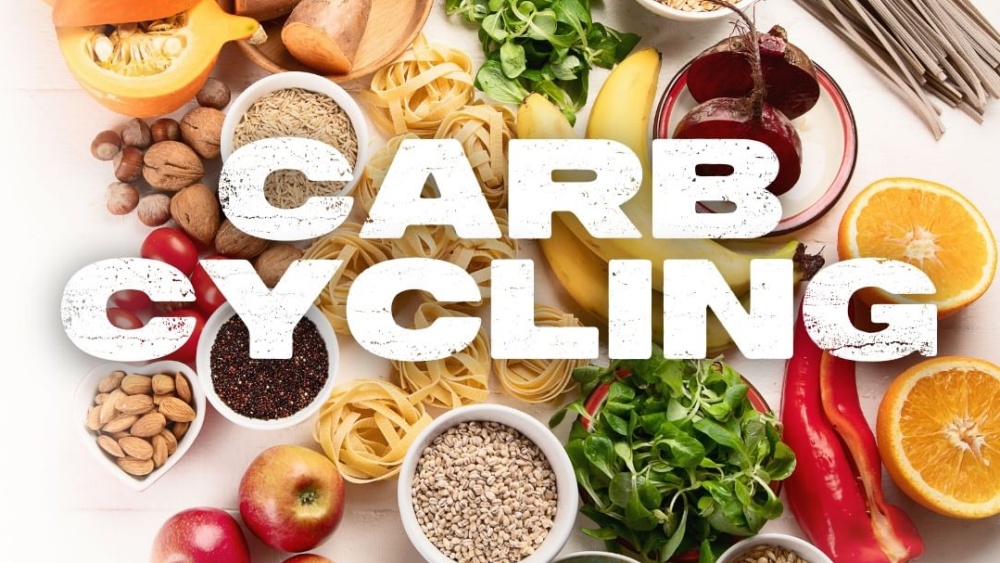Testosterone is a hormone that plays many vital roles in the health and fitness of both men and women, from muscle building, to reducing the risk of some diseases to even controlling sexual function. Testosterone production is usually at its peak around 18 to 19 and slowly decreases as you age.
Testosterone is the main male hormone, but it’s also essential for women. Low testosterone in women can lead to fertility issues, poor sex drive, and weak bones. Low testosterone has a more significant effect on men. Some of its effects include:
- Reduced sex drive
- Erectile dysfunction
- Infertility
- Impotence
- Lack of motivation
- Reduced muscle mass and strength
- Reduced concentration
- Reduced bone density
- Fatigue
- Man boobs
- Depression
Fortunately, there are ways to naturally improve your testosterone levels if you’re experiencing any of these symptoms. This article will discuss some of the things you can do to increase your testosterone levels naturally.
13 Scientifically Proven Ways To Increase Testosterone Levels
Testosterone is a steroid hormone that’s mainly produced in the ovaries and testes. Small amounts of testosterone are also made in the adrenal glands. For males, testosterone is one of the primary drivers of the physical changes that take place during puberty, like facial hair growth, deepening of the voice, and increased muscle mass.
Having optimal levels of testosterone is essential throughout adulthood. Adult males need healthy testosterone levels for just about everything, like proper sexual function, body composition, and disease risk. Testosterone also plays an essential role in female sexual well-being and health.
Think your testosterone levels are below optimal levels? Here are some natural ways to get your body to produce more:
1) Exercise Regularly
Exercise helps to prevent many health issues like high blood pressure, heart disease, and diabetes, and it can also give you a testosterone boost. A study conducted in 2015 showed that obese men who increased their physical activity levels saw an increase in their testosterone levels.
Exercises like weightlifting and high-intensity levels provide a more significant testosterone boost than other forms of exercise, but any exercise generally increases testosterone production.
2) Keep Stress And Cortisol Levels To A Minimum
Long-term stress can elevate cortisol levels, leading to a reduction in testosterone levels. Cortisol is the stress hormone and has an inverse relationship with testosterone. The higher your cortisol levels, the lower your testosterone levels will be, and vice versa.
High cortisol levels and stress can also lead to a higher food intake, weight gain, and fat buildup around your organs. All these things are also known to impact testosterone levels negatively.
You’ll need to find effective ways to manage stress to keep your testosterone production at healthy levels. Exercising, practicing relaxation techniques, and getting enough sleep at night all help to reduce stress and cortisol production.
You can also turn to destructive therapy for stress relief which involves taking out your frustration on inanimate objects. Learning martial arts like Muay Thai, Kickboxing, and Boxing can serve as destructive therapy while simultaneously giving you the benefits of regular exercise.
3) Eat Balanced Meals
https://www.youtube.com/watch?v=Gmh_xMMJ2Pw
The foods and beverages you consume affect your body’s production of testosterone and other hormones. Also, overeating or frequent dieting can disrupt your testosterone production.
Protein is one of the essential nutrients your body needs regarding testosterone production. Getting enough protein also helps eliminate excess fat in your body. Healthy plant-based fats like nuts also support testosterone production and hormone balance. Some studies even show that a low-fat diet can lower testosterone levels.
Testosterone typically exists in the bloodstream in two ways. It can be bonded to a protein known as sex hormone binding globulin (SHBG), which transports it throughout the body. SHBG is also known as albumin. Testosterone bonded to SHBG is inactive, so it does not affect the body. It is called total testosterone and makes up approximately 98 percent of a man’s testosterone levels.
The remaining two percent of testosterone is called free testosterone, and that’s the vital stuff. Free testosterone floats all over your body and binds to receptors that need it to keep your body working optimally. The more free testosterone you have, the better.
That’s where protein comes in. Protein limits SHBG, leaving you with more free testosterone. Eating more protein can also help you lose weight, but don’t remove carbohydrates from your diet since that can lower testosterone levels. Balance is key.
A balanced diet consists mainly of whole foods with a balance of proteins, fat, and carbs. Your diet should be about 35 percent protein, 20 percent fats, and 45 percent carbs. You can make modifications as needed to meet your current fitness goals.
Stick to lean protein sources like poultry, eggs, fish, and beef. You can also get your proteins from plants like legumes, seeds, and nuts.
Keep soy products to a minimum since they contain phytoestrogens that mimic the effects of estrogen on testosterone production.
4) Get Adequate Rest And High-Quality Sleep
Getting sufficient sleep regularly is as important as exercising and eating healthy. Research shows that teenage boys and men with sleep impairments have lower testosterone levels. The ideal amount of sleep you should aim for varies for each person. Most research suggests aiming for at least seven hours of sleep each night. Ideally, you want to wake up naturally in the morning instead of an alarm clock waking you up.
5) Get More Sunlight
Most people don’t get enough sunlight, but it’s needed for your body to produce vitamin D. Vitamin D is a macronutrient that plays a crucial role in many aspects of your health. About 15 percent of people worldwide are deficient in vitamin D.
Some research links low vitamin D levels with lower testosterone. A study on Vitamin D-deficient men in 2017 showed an improvement in erectile dysfunction and increased testosterone levels after starting vitamin D supplementation.
The best way to naturally increase your vitamin D levels is exposure to sunlight. Aim for about 10 to 30 minutes under the sun daily. If that’s not an option, start taking vitamin D supplements.
6) Limit Your Alcohol Intake
Testosterone and alcohol have a complex relationship. Some research indicates excess alcohol consumption leads to lower testosterone production. The drop in testosterone levels can take place as fast as half an hour after drinking. Heavy alcohol consumption worsens things since it can cause testicular atrophy and lower testicular function, so your body makes less testosterone.
Interestingly enough, higher testosterone levels can indicate potential alcohol use and heavy dependence. Keep your alcohol use to a minimum to maintain healthy testosterone levels.
Some of the ways alcohol impacts testosterone levels include:
- Alcohol can impair the pituitary glands and hypothalamus, the two regions of the brain that send signals to the testes to produce more testosterone.
- The oxygen molecules created as the body processes alcohol might damage cells in the testes, reducing testosterone production.
- The body makes ethanol as it processes alcohol. Ethanol lowers one of the enzymes that play a crucial role in testosterone production.
- Regular heavy drinking elevates cortisol and estrogen levels, reducing testosterone production.
7) Take Supplements
Studies show that some micronutrients can increase testosterone levels. For example, zinc supplements increase sexual function and testosterone production. Other supplements known to boost testosterone production include magnesium, ginger, saw palmetto, and ashwagandha. Talk to your doctor before starting with supplements to ensure they don’t interfere with any medications you’re currently taking or existing health issues you might have.
8) Avoid Estrogen-Like Compounds
High exposure to estrogen-like chemicals can reduce your testosterone levels. These compounds interfere with and disrupt the production, transportation, binding, metabolism, elimination, and release of natural chemicals in the body responsible for maintaining healthy hormone levels
These estrogen-like chemicals can be found in a wide range of products like herbicides, pesticides, pharmaceuticals, plastics, and dietary components. You are exposed to these chemicals via the things you consume, inhale, and make skin contact with.
Prioritizing whole organic foods with no additives reduces your exposure to such chemicals. Keep your use of plastics to a minimum as well.
Many plastic products contain Bisphenol-A, a chemical that’s absorbed by your body when you make contact with it. Once inside, your body treats it like estrogen, decreasing testosterone production in the testes. It also increases your cancer risk. Keep exposure to plastics to a minimum and opt for glass or ceramics when possible.
9) Get Treatment For Underlying Health Conditions
Low testosterone is often the result of one or more underlying health issues. Some common conditions that can cause low testosterone include obstructive sleep apnea, metabolic syndrome, and type 2 diabetes.
Medical treatments can also cause low testosterone levels. For example, radiotherapy and chemotherapy are linked to lower testosterone levels. Getting evaluated by a doctor helps you to understand what’s potentially causing your low testosterone so it can be medically addressed.
10) Lose Weight
Testosterone production in men occurs in the testes when the brain’s pituitary glands and hypothalamus region receive signals that the body needs more testosterone. These glands send signals to your testes and respond by increasing testosterone production.
However, being obese negatively impacts this process since it causes an increase in estrogen levels. Estrogen lowers testosterone levels by sending signals to the brain that testosterone is no longer needed. Lower testosterone levels lead to fatigue and a loss of motivation, making you less likely to go to the gym to work off the excess weight. This starts a vicious cycle that could jeopardize your metabolic balance and overall health.
You can reverse the effects of obesity on your testosterone levels by losing weight. Any exercise increases your testosterone levels, and so does getting enough protein and healthy fats in your diet. Your testosterone production increases as excess fat come off your body and your estrogen levels drop.
Weightlifting and high-intensity interval training are two of the most effective exercises for increasing testosterone. Losing weight also helps address issues sometimes caused by low testosterone, like erectile dysfunction.
Increasing your testosterone levels will help you to burn fat once you’ve reached your weight loss goals. It’ll make it easier to maintain a healthy weight.
11) Drink More Water
Water plays many important roles all over the body, including helping to manage the production of hormones like testosterone. Most people are chronically dehydrated, and that has a direct impact on cortisol production. Cortisol is produced by the body when it’s stressed, and it suppresses the production of testosterone.
Research shows that cortisol levels increase when men were dehydrated at different times of the day, including during strenuous physical activities like working out. These studies show that the increase in cortisol production negates any testosterone boost derived from exercise.
Being dehydrated also reduces your production of human growth hormone (HGH). As is the case with testosterone, HGH production goes down as you age. HGH regulates growth and development when you’re young, and it helps with muscle growth, weight loss, and healing as you age.
Men should aim to drink about 3.7 liters of water and other fluids daily, while women should aim for about 2.7 liters per day.
Intermittent fasting may help to boost testosterone levels, but the science remains unclear. Intermittent fasting is a diet style that involves alternating between periods of fasting. For example, the most common format for intermitted fasting is a 16:8 split. This means you alternate between 16-hour fasting periods and eight-hour windows you can eat.
Research shows intermittent fasting provides a wide range of health benefits, from reduced blood pressure to improved brain function. It’s also known to increase HGH levels which is closely linked to testosterone.
Intermittent fasting is also an effective way to lose weight, which leads to increased testosterone production.
13) Review Your Medications With A Doctor
At times, the medication you’re taking might be negatively impacting your testosterone levels. You’ll need to talk to your doctor to determine if any prescribed drugs might negatively impact testosterone production.
For example, statins, which are used to treat cardiovascular disease by lowering a patient’s cholesterol, have been shown to reduce testosterone levels. The only way to know if any medication you’re taking has a similar impact on your testosterone is to talk to a doctor or extensively research all the potential side effects of the drug.
You may also like:




















